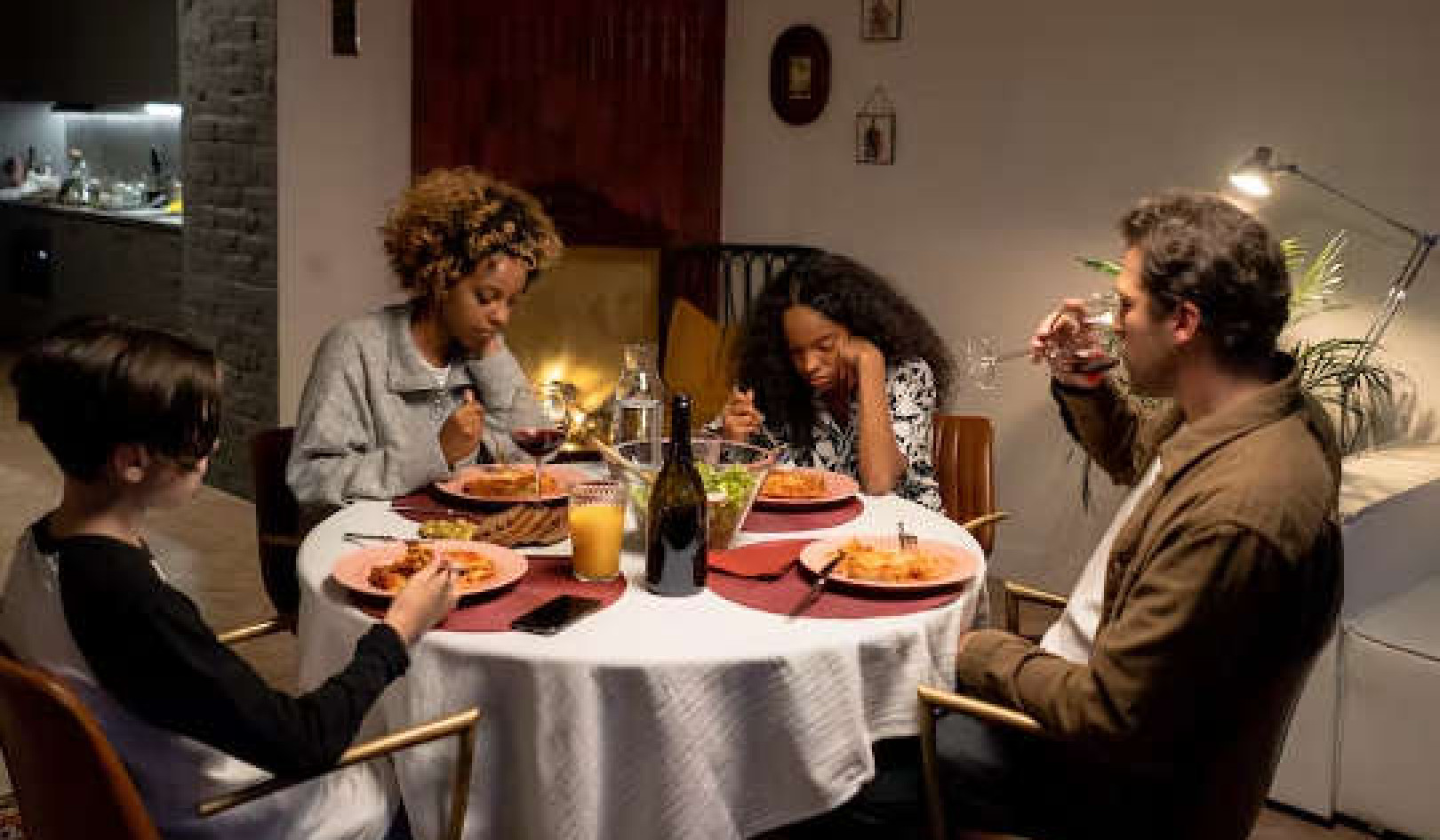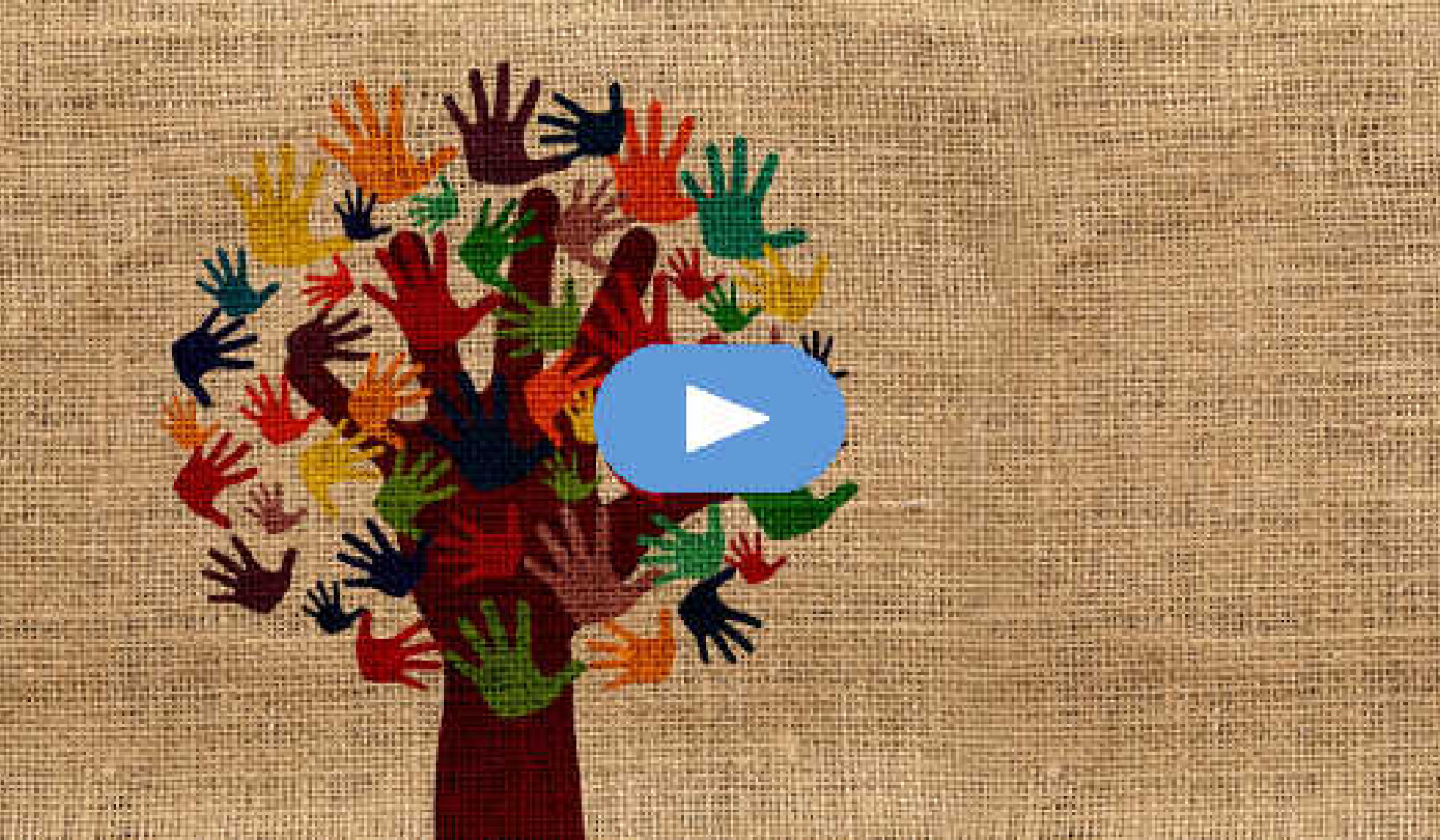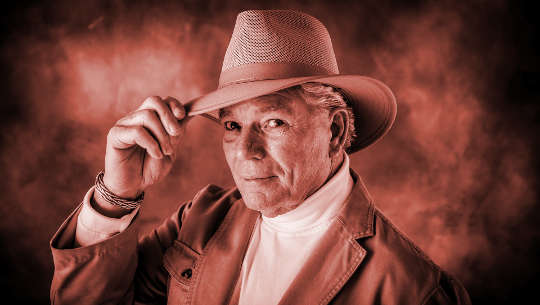
Image by Nathanel Love
The intensity and power of my grief in the first year after my father's passing humbled and frightened me. Even with my experience as a psychotherapist, I was not prepared for the waves of feelings that arose from my depths and bowled me over. I was not prepared for the excruciating sense of aloneness, for the sobering sense of my own mortality, for the changes in my relationships. His death impacted every aspect of my life -- it rearranged my insides, broke down old structures, churned up unresolved issues, and brought everything into question.
Grief, like childbirth, activated primal forces that surged through me in waves, filling me with anguish, longing, relief, anger, depression, numbness, despair, guilt, and often, unbearable pain. I was caught up in a momentum that I could not slow down or stop. These forces were not rational, reasonable, predictable; I was frightened to feel so out of control. In the shadow of birth and of death, I was in touch with powers greater than me -- an experience that humbled and humanized me.
We so often get in the way of grief; we try to suppress, truncate, postpone, or ignore it. We are afraid of being overwhelmed, of becoming nonfunctional: "If I start crying, I'll never stop:" Many of us resist grieving because we think that what we are experiencing is abnormal. We are also afraid that our friends will feel uncomfortable and withdraw from us. Since we live in a culture that expects quick fixes and avoids pain, there is a tendency to pull oneself out of grief prematurely. There can in fact be considerable pressure from friends and family to "pull yourself together and get on with your life:"
But grief is more powerful than our resistance. In grief, it is natural, though uncomfortable, to feel raw, vulnerable, alone, overwhelmed. Even if we manage to suppress it, we compromise our living. We have to shut down. We can't afford to be near anything that might trigger it. Unresolved grief shows up in our lives in symptoms such as chronic physical problems, depression, addictions, and compulsive behavior. And at some later time, often when it is least expected, the grief erupts.
Surrendering to Grief Without Feeling Overwhelmed
How can we surrender to the tides of grief? How can we deepen into it without feeling overwhelmed? How can we heal our regrets? I often recommend that people who are grieving create a sanctuary, a sacred place where you can sit each day with your grief. I encourage you to use this time to explore the intense feelings and thoughts aroused in grief -- you can write, cry, sing, meditate, pray, or just sit.
It is helpful to set up an altar therewith pictures, special objects, candles, flowers. This sanctuary is the place where, in the midst of our busy lives, we can honor our grief. It is the place where we can deepen into our grief and let it work on us. Each time we use our sanctuary, we get the nourishment and strength to go further in the process. As time goes on, we may need to use the sanctuary less frequently, but we can still use it to check in with ourselves.
If you wonder whether you are avoiding or suppressing your grief, I suggest that you use your sanctuary for at least fifteen minutes a day -- to spend that time to listen, slow down, check in. If you are feeling good and nothing much is coming up, that's fine, but keep checking in. This way you are honest with yourself about your grief.
I see the sanctuary as a central strategy for grieving fully without feeling overwhelmed. It is important to spend time alone with oneself. Sharing one's grief with others is also important. Many people feel isolated and even ostracized in their grief, and it is a great relief and comfort to be with others who are having the same kinds of experiences.
Our Relationship Is Sweeter and Closer Than I Could Have Imagined
On the twelfth anniversary of my father's death, I led an all-day "After Loss" workshop. In the morning, each participant briefly shared his/her story, words mixed with tears and at times deep sobbing. The woman on my right had lost her six-year-old daughter two years before.
The woman on my left had lost her brother to the military death squads in Honduras; his body had never been found. The adult sons of two of the women had committed suicide. Another mother was grieving the death of her adult daughter to a sudden illness. Many of the participants had lost parents; others, husbands. Inside that room there was so much grief that at times we felt our collective heart would break. Each loss was our loss; each grief embraced and shared.
Most of these people had not talked so freely with others about their grief. When it was a young woman's turn to speak, she told us that her friends insist she has been grieving too long. "They don't know what I'm going through at all. I just want to know that I'm OK, that I'm not crazy to be grieving like this:" She was asking for the support and encouragement we all need.
Included in our circle were the photographs of our deceased loved ones, their faces brimming with the life that had now left them. My father's picture was there. He was leaning against the railing of my parents' deck, wearing a yellow sweater, his thick gray hair combed neatly back. He was looking up into the sky, a soft light falling across his face. Did he know that he would soon be journeying into a much greater mystery?
As I look at that photograph, I remember my father as he was. But when I close my eyes, I am with him now -- and our relationship is sweeter and closer than I could have imagined.
An Inner Relationship
The unfoldment of an inner relationship with my father has been the greatest surprise and gift of my grief. I was compelled to develop this relationship during my father's illness in response to my anticipatory grief. Following the cancer diagnosis, I began to feel desperate about the distance between us; time was running out. My father went on with his life as usual, refusing to talk about this life-threatening disease.
As I agonized over his cancer and the silences in our relationship, I instinctively created a sanctuary in my bedroom, placing on a shelf, next to my bed, pictures of my father, flowers, and special gifts he had given me. During his illness, I sat in front of this altar every day and opened to my grief. Each time I sat in the sanctuary, I closed my eyes and opened to whatever might emerge. Images of my father spontaneously began to fill the empty space of my meditations.
Fortunately, I had worked with imagination and I trusted its wisdom. I did not dismiss my experiences by telling myself, "That's just my imagination". I was comforted and inspired by my father's presence within me, even though at the time I had no idea where this would lead me.
As the weeks passed, I realized that an inner relationship was developing as my father's life was slipping away; within me we were able to talk about our past hurts and disappointments and appreciations. We talked about his dying. I held him as he convulsed with pain, and he held me as I shook with tears of grief. He was open and vulnerable in a way that had been inconceivable in our outer relationship.
As this inner relationship grew stronger, I felt more accepting of the limitations of the outer one. During his last weeks of life, I was able to sit with him in the hospital, my heart open and loving. No longer waiting and hoping for the right moment to talk about our relationship, I felt at peace with him. When he lapsed into a coma, I still could connect with him inwardly.
His death in 1988 severed our outer relationship. But my father lived on within me, though death had transformed our relationship. He was softer and more vulnerable with me in my dreams and inner journeys than he had been able in life. He was wiser. When I asked him for advice about issues I was struggling with, he seemed to see invisible connections between things and had a much larger perspective. He was detached from our family dynamics and with good humor could advise me on my relationship with my mother. His old hurts didn't seem to matter to him anymore.
He was also freed of the interests that had consumed him in life. In the last three decades of his life, he had felt driven to succeed in the corporate world, rising at 5 A.M. to go to work and returning home late -- even after the cancer had eaten into his bones. Within me after his death, he seemed at peace with himself.
The End?
Most of us see death as an ending, a final loss. We assume that any possibility for reconciliation is gone. But this is just another concept that limits us in our grieving. For many other cultures there is no impenetrable wall to divide the living from the dead.
The New York Times 1996 front-page article entitled "For Rural Japanese, Death Doesn't Break Family Ties" gives the example of a widow in a rural Japanese village who offers her deceased husband rice every morning and holds conversations with him, hearing his responses in her head. She is convinced that her husband changed after the logging accident that killed him nine years before and that her relationship has deepened since his death. Whereas he was once harsh and dictatorial, she finds him kinder now.
"Mr. Tsujimoto may be dead, but he is certainly not gone," the article states. "As is common in Japan, he remains a respected presence in the house, regularly consulted by family members on important matters."
Sukie Miller in her book After Death finds a similar theme in many other cultures as well: "My research has accustomed me to the idea that a larger proportion of the world's people can access other realms. For many people realms of death are as indisputably there as San Francisco is to New Yorkers, as Africa is to Brazilians. It is a case of living within the whole of reality, not just the parts one can see. Through the vital imaginings of the people of the world, all of us can gain access to realms beyond borders" (Miller, p. 46).
It's Never Too Late
Death need not cut us off from those we love. Through dreams and techniques using the imagination, we can access an inner relationship with a deceased loved one, a relationship that offers powerful and mostly untapped opportunities for healing, resolution, and even guidance. It has been my great joy to provide the tools for people to discover and explore the relationship with a deceased loved one. I have witnessed deep healings and breakthroughs as well as subtle shifts -- even after years of bitterness and regret.
Very few of us ever fully express our love for another. Afraid of being hurt, we find ourselves unwilling to be as vulnerable and open as that admission requires. Despite our efforts to avoid hurts and resentments, however, they inevitably build up in our relationships with family and friends. Unaired, such hurts close our hearts and create distance between ourselves and our loved ones, increasing the difficulty even more of expressing our love and appreciation. So when a loved one dies, we may find ourselves filled with regret for all that remained unspoken. The realization that all opportunities have passed for that last talk, or even just a good-bye, can be agonizing.
Many of my clients have said, about a mother, grandmother, or sister, "How I wish I had told her I loved her before she died:' This kind of unfinished business can prevent us from letting go and moving on with our lives. In our grief, our old resentments, regrets, and unexpressed love can gnaw at us, creating wounds that contaminate all our other relationships.
Grieving Fully So That We Can Fully Live
In the afternoon of the workshop, participants worked with a series of exercises to foster a present connection with the person who had died. I urged them to be open to the relationship as it is now, not to hold onto past memories which freeze the relationship into the past and make it difficult if not impossible to experience any shifts or changes that have taken place since the death. Ellen, who at first refused to focus any of the workshop exercises on a father she hated, experienced a breakthrough in her relationship with him such as she never could have imagined. And Miriam discovered answers to questions that had plagued her since her son's suicide.
Behind the group of photographs was a large window through which we could see a cherry tree aflame with red and pink blossoms, quivering with life, as though to remind us that we succumb to grief so that we can fully live. If we have grieved fully, we will emerge one day from the dark passage into a new life, seeing with new eyes, experiencing life with new vigor. Each moment becomes precious, an opportunity to embrace the wonder of life.
Abraham Maslow writes, "In the postmortem life everything gets precious, gets piercingly important. You get stabbed by things, by flowers and by babies and by beautiful things:" As I looked at those tender, translucent blossoms throughout the day, I couldn't help feeling stabbed by their beauty -- transitory as it was.
As I packed up my notes at the end of the day, slipping the picture of my father into the pocket of my briefcase, I felt profoundly grateful to him for making it possible for me to do this work. It is grace to be with those who are grieving -- everything is stripped bare and there is room for humanness and mystery. I am continually reminded of the power of the human spirit to heal and of the new beginnings in every ending.
Hi Dad!
Shortly after that workshop I visited with my father in my imagination. It had been years since his death and months since our last visit, and I was overjoyed to see him. I often don't realize how much I miss him in my everyday life until I am once again in his presence.
This time he spoke about love -- how love is within us and all around us, that if it were not for love the electrons would not move in their orbits nor the stars in the heavens. He squeezed my hand -- love too has guided the evolution of our relationship. We looked up. Thousands of stars shimmered above us against a black backdrop of space. Standing there beside him under a dome of limitless stars, I felt surrounded by mystery and profoundly grateful that he lives on within me.
To the imagination, death is not an ending, not a catastrophe but a transformation. Within you, your loved one lives on, and with your participation, your mutual relationship will grow and change.
Reprinted with permission of the publisher,
Beyond Words Publishing, Inc. ©2001.
http://www.beyondword.com
Article Source:
The Infinite Thread: Healing Relationships beyond Loss
by Alexandra Kennedy.
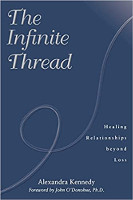 The loss we feel when a loved one dies is profound, often accompanied by regret for all that we didn’t say or do. Such regret can hinder emotional growth and create wounds that affect all other aspects of our lives. But loss doesn’t necessarily mean the end of a connection with a loved one. In fact, it can open the doors to a unique relationship that offers intimacy, healing, and renewal.
The loss we feel when a loved one dies is profound, often accompanied by regret for all that we didn’t say or do. Such regret can hinder emotional growth and create wounds that affect all other aspects of our lives. But loss doesn’t necessarily mean the end of a connection with a loved one. In fact, it can open the doors to a unique relationship that offers intimacy, healing, and renewal.
In The Infinite Thread, author Alexandra Kennedy helps us deal with loss in a powerful new way: by using active imagination, letters, and inner dialogue to re-create and heal past relationships. In doing so, we also amend the often-strained ties with those still living.
Info/Order this book. Also available as a Kindle edition.
About the Author
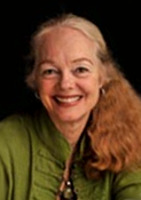 Alexandra Kennedy, M.A., is a psychotherapist in private practice in Santa Cruz, California, and author of Losing a Parent. She has led workshops and lectured on grieving at universities, hospices, churches, and professional organizations. She is a faculty member at the University of California Santa Cruz Extension. Her articles have appeared in Yoga Journal, Mothering magazine, and California Therapist.
Alexandra Kennedy, M.A., is a psychotherapist in private practice in Santa Cruz, California, and author of Losing a Parent. She has led workshops and lectured on grieving at universities, hospices, churches, and professional organizations. She is a faculty member at the University of California Santa Cruz Extension. Her articles have appeared in Yoga Journal, Mothering magazine, and California Therapist.
To share responses to The Infinite Thread: Healing Relationships beyond Loss or to obtain information regarding workshops and lectures, go to www.Alexandrakennedy.com.
























